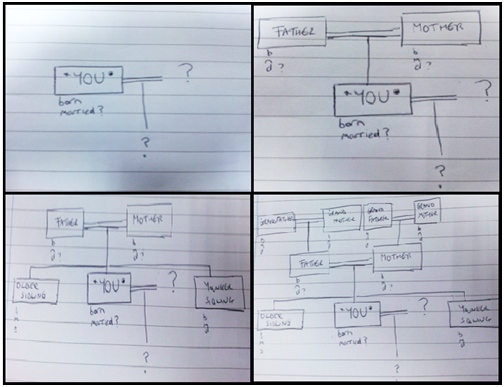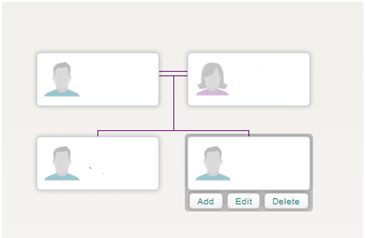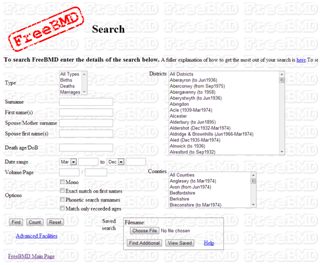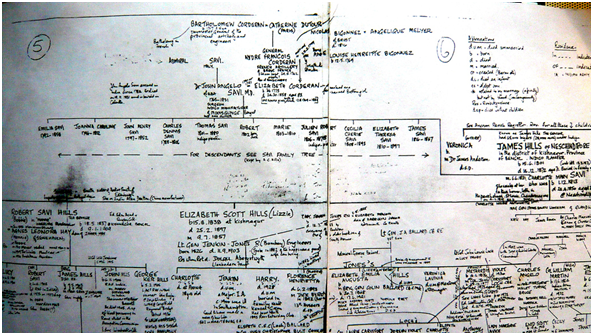How to start building your family tree online
- Subscribe to RSS Feed
- Mark as New
- Mark as Read
- Bookmark
- Subscribe
- Printer Friendly Page
- Report to Moderator
- Plusnet Community
- :
- Plusnet Blogs
- :
- How to start building your family tree online
How to start building your family tree online
 Have you ever wondered if you are related to somebody famous? An A-List celeb from Hollywood or someone that helped change the course of history? Popular TV programmes, such as Who Do You Think You Are?, have encouraged more people to research their family tree. But are you confused about where to begin and need some handy hints? With the aid of expert Ian Marson, from genealogy company Linklines, we have put together this guide to building your family tree.
Have you ever wondered if you are related to somebody famous? An A-List celeb from Hollywood or someone that helped change the course of history? Popular TV programmes, such as Who Do You Think You Are?, have encouraged more people to research their family tree. But are you confused about where to begin and need some handy hints? With the aid of expert Ian Marson, from genealogy company Linklines, we have put together this guide to building your family tree.
Starting Your Tree
"Being organised is important and when starting out the most common mistake people make is not to write everything down,” states Ian.
Your initial research is important and a lot of it takes place offline. Here’s where to begin:
- You: write down what you know about your family such as dates of births, marriages and so on, plus locations. Add any noteworthy information such as employment.

- Relatives such as parents and grandparents can provide information. They offer a wealth of knowledge and you may be surprised by what they tell you.
- Obtain any documents that are left in the family such as photographs. These can help research and put names to faces.
Ian, accredited by the Association of Genealogists and Researches Archive (AGRA), advises:
“Start with what you know about yourself and your family. Talk to relatives, look at what family papers you have and ask your relatives to do the same. “It is important to write all this down, even if you are not sure if the facts are correct, you can always check these out later.”
Using This Information
Start with yourself and add in parents, siblings, grandparents and great-grandparents if you can get information that far back. Rough notes taken down (as above), can be converted into a more appealing visual look online through websites such as Genes Reunited that may be easier to read.  When using documents for the family tree, Ian adds:
When using documents for the family tree, Ian adds:
“It is essential to have these so you can actually prove relationships between people. Never guess and always check your sources. Write it down, take copies if possible and most importantly keep a record of what you have checked, whether you find anything or not. Otherwise you will forget where you have looked and in five years’ time you will be looking at the same records you have looked at before. “Also, your family history will be a legacy for your descendants and they will want to know what records you have found and where they can find them.”
Good Tools To Use in Your Search
- FreeBMD - This website is created with the sole purpose of providing birth, marriage and death records from 1837. This data is produced entirely from volunteers, who have viewed and transcribed indexes to the records. They also have sister websites, in their infancy, called FreeCEN (Census Records 1841-1891) and FreeREG (Parish Registers).

- Genes Reunited Premium – Although it comes at a cost, Genes Reunited Premium is extremely useful in viewing census records, searching war records and archives from newspapers. It also offers you the opportunity to communicate with people who may have matches to ancestors in your tree. This can be a useful way of obtaining more information on areas of the family you may not know about.
- Ancestry Premium – Ancestry also offer Premium features, much the same as a Genes Reunited. They also offer records from courts, wills and probates, and schools and directories.
Play around with FreeBMD and the census searches to get used to the way they work in the first instance. The more information you have the better and dates are generally shown in the quarter of the year the event took place. Census records are particularly helpful in confirming names and extra relatives you may not be aware from your initial research. Extra information is also provided on censuses, such as any children that may have died young or between censuses. Ian explains:
“Building a family tree is much more than collecting names and dates - it’s called putting flesh on the bones. So once you have found birth, marriage and death records and looked at census records make a note of occupations and where people lived then go to that locality and see what other records are available. For instance in Sheffield many worked as cutlers so it is worth looking at the records of the cutlers company. “You may find criminals in your family. It was not uncommon because what we may consider a misdemeanour nowadays may at one time have been viewed as much more serious.” “Newspaper reports are always a good source of information and don’t forget that your ancestors could have made wills which would give a good indication of any property and belongings they had.”
In terms of ancestors who may have been overseas, Ian explains that a good website to use is Cyndi’s List:
“If you have relatives overseas then try searching the internet first to see if there are any online records available. A good web site to look at is Cyndi’s List, which has many links to records all over the world.”
 “Creative Commons Family Tree” by HerryLawford is licensed under CC BY 2.0
“Creative Commons Family Tree” by HerryLawford is licensed under CC BY 2.0
Common Issues
Transcriptions – Online records have usually been transcribed by volunteers and so errors can occur in spelling of names. Whilst in the majority of cases searches should provide results you are looking for, it may be worth ticking the phonetic search box if struggling to find a relative, particularly with surnames that are pronounced the same but spelt differently (i.e. Keiley/Keeley).
“Thinks about your surname and think about how it could be spelt in other ways and the chances are that as you search further back you will come across that spelling. Never assume your surname will be spelt the same was in every record" advises Ian. “It was not uncommon for people to be unable to read or write so if anyone had to write a name down they may well spell it as they saw fit, for example Clark, Clarke, Clerk and Smith, Smyth, Smythe.”
Errors on Census Records – As with transcriptions, early censuses were the responsibility of enumerators – paid volunteers – who collated the information on behalf of the government. If the forms had not been completed by the homeowner, the enumerator would question the household family members and fill in the information based on their answers. As a result this has meant that records on censuses can change, such as ages of household members, birth locations, occupation and spelling of names. This was as a result of illiteracy and also a lack of knowledge about some of these details. Findmypast.co.uk provides some great information on common errors on census records. Irish Census Records – Although census records were kept for Ireland, sadly a lot of them were destroyed in fires and have been lost. Alternatives have been kept but a lot of information is now inaccessible. 1901 and 1911 censuses are available online at http://www.census.nationalarchives.ie/. Change of names: When using information provided by grandparents and great-grandparents, one issue you may come across is that they sometimes refer to siblings and relatives by nicknames or shortened names (i.e. James becomes Jim) and not their original name. Any documents left in the family can help provide accuracy for close members of family. The Experience of Researching Your Family Tree Building a family tree can be an enjoyable and interesting experience particularly when learning things you didn’t know about yourself such as extended family. It requires a lot of patience and perseverance on your part and online tools can help get you started. Ian offers some final words for researchers:
“Be sceptical: there is so much online now relating to family history and unfortunately there are many errors so another mistake is not to check out the information you have found. If you do see other family trees online that you think are part of your family then check the credibility of these. Many are wrong and you will start barking up the wrong tree if you don’t check them out thoroughly. “Never miss out a link, always work from the known into the unknown. It is a big mistake to jump to the next generation back without first verifying what you know. Never rush, take your time and be methodical. If you are serious about tracing your family history then you will make a big investment in the amount of time you spend doing that, so the return on your investment is to know that you have done the research and proved your pedigree without any doubts.”
Have you ever been interested in looking into your family tree or already started building it? Share your experiences and tips below with the rest of our Plusnet community and let us know how you are getting on!
